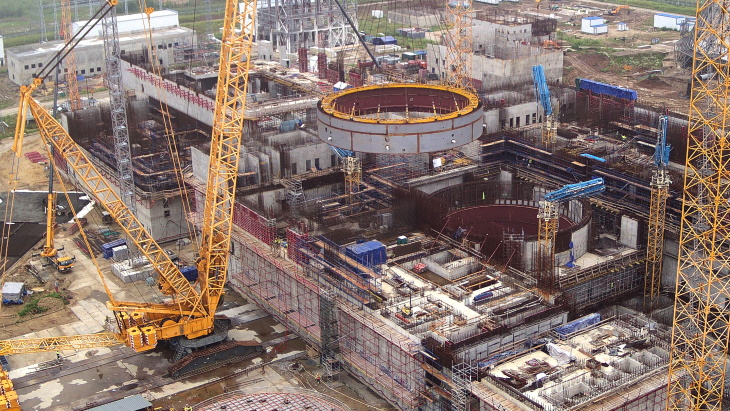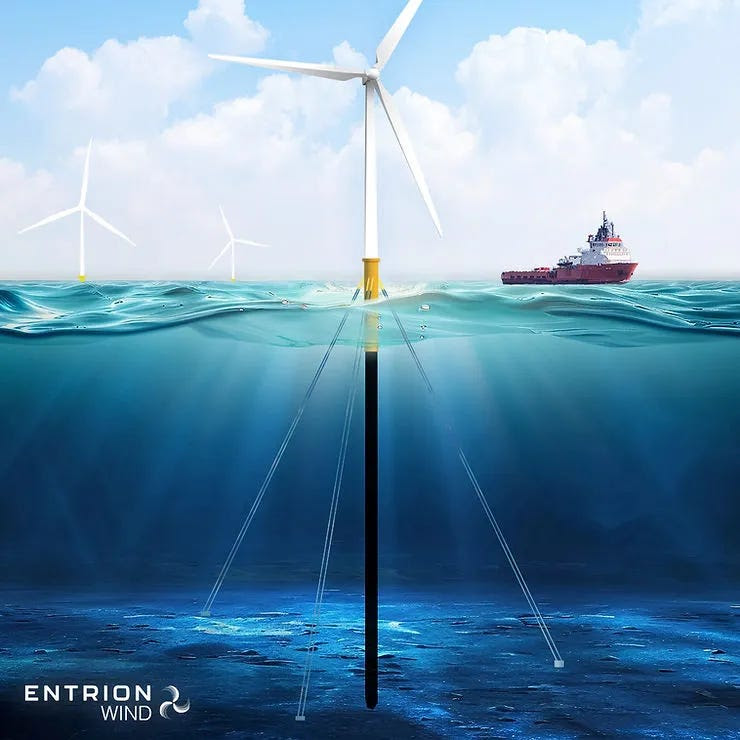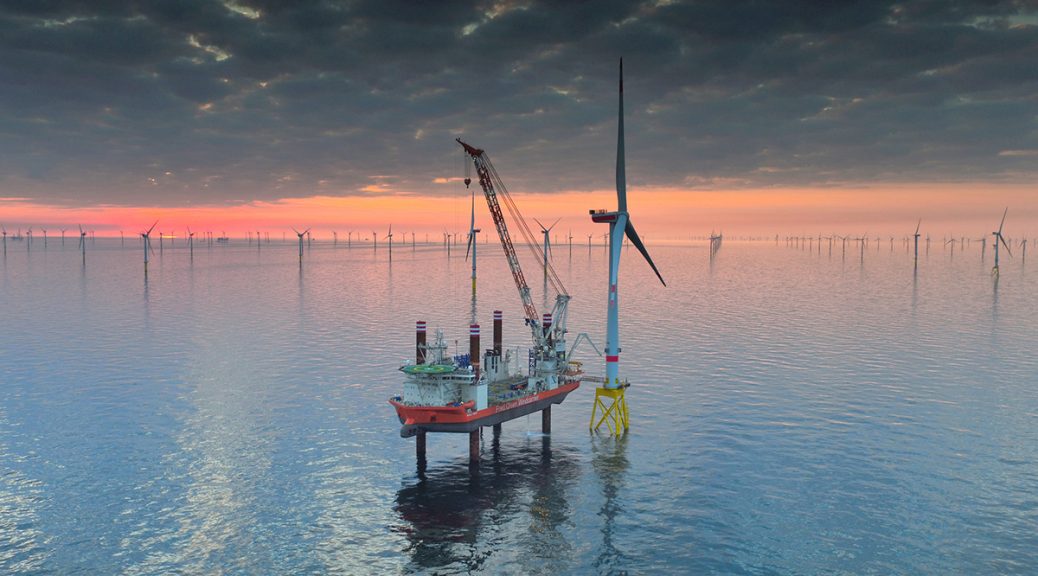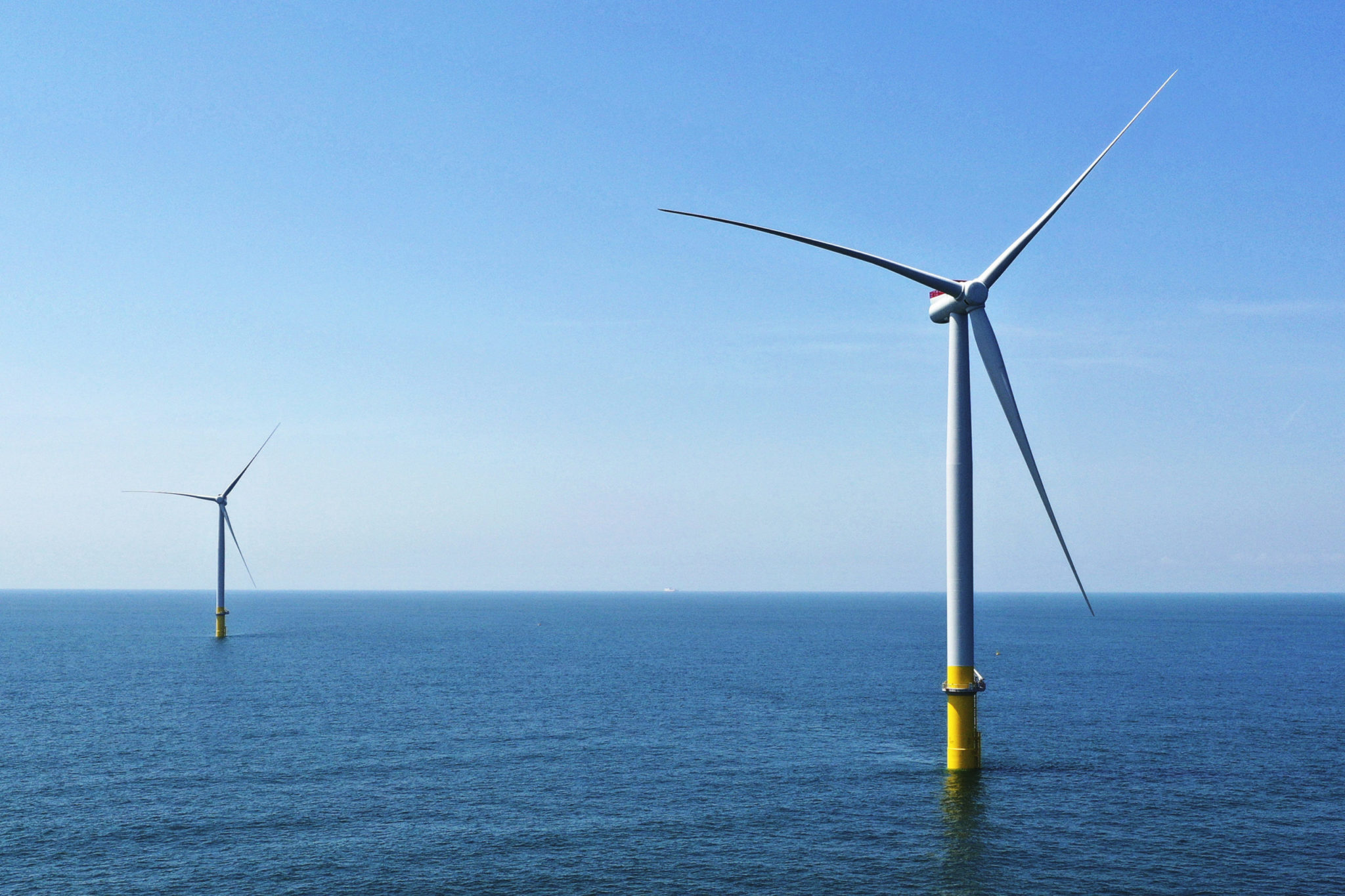
The containment structure of the reactor consists of three assembly blocks installed in the design position in the reactor shaft. The steel reactor base plate and lower tier of the containment were installed at the turn of the year, while the second tier was hoisted into place in April.
With the installation of the third tier, the total mass of the structure is 429 tonnes, and its height is 17 metres.
Workers will now assemble the cooling system pipelines, drying system and intermediate shell. The cavity of the enclosing structure will then be filled with heat-resistant concrete.
According to Rosatom: "The containment structure is the outer part of the reactor vessel. It provides retention of heat-insulating concrete, forming an additional localising barrier of protection, which surrounds the boundary of the coolant circuit. On its surface, the temperature should not exceed 60°C, and the radiation background is actually equal to the natural background."
The BREST-OD-300 fast reactor is part of Rosatom's Proryv, or Breakthrough, project to enable a closed nuclear fuel cycle. The 300 MWe unit will be the main facility of the Pilot Demonstration Energy Complex at the Siberian Chemical Combine site. The complex will demonstrate an on-site closed nuclear fuel cycle with a facility for the fabrication/re-fabrication of mixed uranium-plutonium nitride nuclear fuel, as well as a used fuel reprocessing facility.
The target for the BREST-OD-300 reactor is to start operation in 2026.
Initial operation of the demonstration unit will be focused on performance and after 10 years or so it will be commercially oriented. The plan has been that if it is successful as a 300 MWe (700 MWt) unit, a 1200 MWe (2800 MWt) version will follow - the BR-1200.



